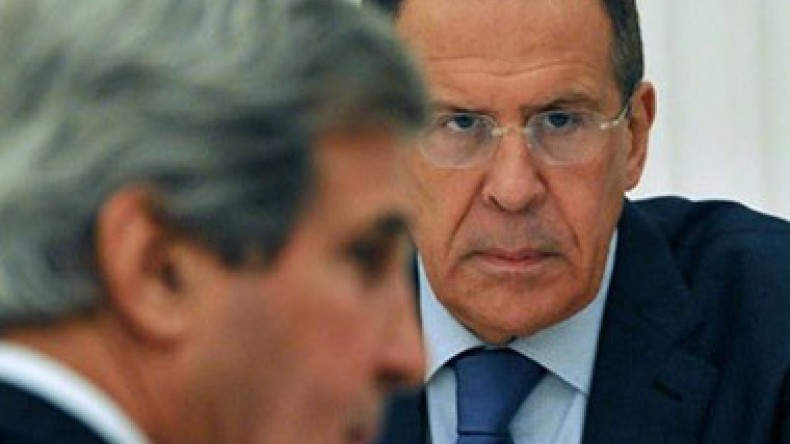
‘US in awkward position regarding Syria’
Press TV has conducted an interview with Daoud Khairallah, a professor of law at Georgetown University, about US Secretary of State John Kerry and Russian Foreign Minister Sergey Lavrov calling for a ceasefire in Syria ahead of the Geneva II conference aimed at resolving the Syria crisis.
- What do you think needs to be done before this Geneva conference is held and what should be the conditions under which this conference is going to be a successful one?
- I think at this stage probably the most important, the most urgent problem to solve is to stop the bloodshed in Syria and this presents a major challenge to all the parties. Why? Because there are so many mercenaries on the ground.
Al-Qaeda and its derivatives who will not be part of Geneva and who are the dominating force on the ground, who is able to command these forces and have them obey their command? And this alone is a major problem to reckon with, to wrestle with.
- Mr. Khairallah, sorry for jumping in here. When we are speaking about ways to stop the bloodshed you just mentioned there, a lot of people are saying one important factor is urging countries like Turkey, Saudi Arabia, the United States, etc. to stop their support for the insurgent groups especially when it comes to the extremist groups in Syria. Would you agree with that?
- Yes I do, because I think the US and its allies in the area are basically behind what they called armed Syrian opposition. This interference in the internal Syrian affairs has caused a lot of bloodshed, lot of destruction in Syria and it is in clear violation of international law and disrespect of the Syrian sovereignty.
Any change in the political system or the political leadership in Syria should be a purely Syrian issue. Syrian people are the only people who have authority to choose their political system and their leaders.
- When the United States says that it is giving non-lethal aid to the insurgents or it is distinguishing between those who are affiliated to al-Qaeda and those who are not, do you think on the ground it is making any difference because a lot of people would be suggesting that giving this aid to insurgents will allow that aid to be taken by the wrong people and be used by the wrong people?
- Well the US has basically committed one mistake after [another]. It has tried to sponsor some kind of opposition in Syria and fashion them the way they want.
They started with the Syrian Council and then another attempt in the Syrian Coalition and then they let the Saudis develop some military group which are al-Qaeda flavors even though they are not under the same leadership of al-Qaeda, al-Zawahiri and company and the people on the ground, those who are fighting with the so-called American supported opposition have left their troops and went to the other side, to the side of al-Qaeda that is ISIS, al-Nusra and some other Islamic fundamentalists.
So the US finds itself in a very awkward position now and it has let the Saudis to continue sponsoring forces on the ground and no one seems to have control and that is why I think one of the major challenges, who can command those armed opposition on the ground and have its command obeyed and in fact maintaining some kind of ceasefire anywhere they decide that it should be done.
Newsfeed
Videos






























